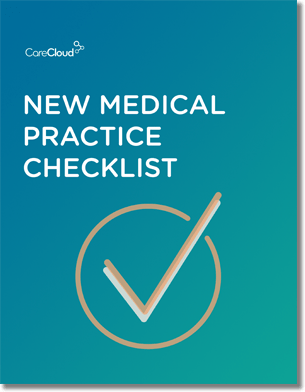Recent developments in the field of technology have given birth to the unfathomable potential of Artificial Intelligence bots such as ChatGPT. This concept of Artificial Intelligence has quickly made its way toward making a beneficial impact on several industry sectors such as business, education, finance, and customer service.
Therefore, exploring its impact on the healthcare sector is an intriguing phenomenon that has yet to be explored.
However, before diving into the functionalities and benefits of ChatGPT in healthcare, it is imperative to understand how the technology functions.
What is ChatGPT?
Essentially, ChatGPT is an AI chatbot that generates a response according to the instructions given in the form of a typographical dialogue with the technology. Unlike search engines, ChatGPT does not possess the quality of searching the internet for an accurate response. Therefore, the technology works by analyzing data fed into its robust system to follow instructions. Consequently, it provides users with either a response to the question or the curated result of a product created on the basis of the instructions given.
ChatGPT in Education and Research
In the field of education, ChatGPT’s technology has been used to solve complex licensing exams and to write essays on diverse topics to analyze the spectrum of its knowledge. ChatGPT’s technology has shown substantial results in both arenas, astounding the general public by successfully passing these specialty exams and curating extensive drafts on complex topics of research.
Experimentally, ChatGPT was analyzed to sit the US licensing medical exam, the USMLE, which sources claim the technology was able to pass successfully.
However, the technology’s role in benefiting the healthcare sector is yet to be determined.
Benefits of ChatGPT in Healthcare
Improving Healthcare Access:
The ChatGPT technology is not language-specific. This means that technology can surpass the barriers of language in providing healthcare across larger geographical distances.
Although ChatGPT’s technology is not authorized to provide medical consultation or advice, it can, however, be a source of transmission for public service messages to improve health outcomes across countries.
Enhancing Diagnostic Protocols:
ChatGPT possesses the characteristics of analyzing, interpreting, and managing data. This allows healthcare providers to utilize ChatGPT’s technology to filter through unstructured clinical data and display essential patient information in an organized format that allows doctors to diagnose effectively. This data can include lifestyle, nutrition, laboratory results, patient history, and demographic information.
Clinical Decision Support
Consequently, this characteristic also helps doctors utilize ChatGPT to filter through extensive amounts of patient data to pinpoint a number of differential diagnoses that best match the patient’s symptoms.
This feature can benefit physicians largely by effectively curating treatment plans through accurate diagnoses. Additionally, it can also allow for fewer complications as a result of experimental treatments and fewer instances of drug interactions. This is because ChatGPT can also highlight and display relevant drug histories pertaining to patients, which helps in formulating personalized treatment plans for diseases.
Additionally, research states that ChatGPT technology can also be utilized to summarize medical reports and extract key details such as symptoms, history, and treatment-related data for effective diagnosis and management.
Biomedical Research
Biomedical research is an essential aspect of science and medicine today. The field is dedicated to exploring biological and medical processes in order to improve the diagnosis, prevention, and management of chronic diseases.
Through the ChatGPT technology, physicians can visualize impactful data insights, as a result of the technology’s ability to maintain and analyze substantial amounts of data, which allows physicians to utilize these results to conduct successful research in the Biomedical field.
Essentially, it can help scientists procure new treatment protocols for certain genetic diseases.
Personalized Medical Assistance
Since the ChatGPT bot functions through a question-answer format, patients can now use this technology to acquire medical information regarding their symptoms or request data on essential medical information, such as how to perform CPR and manage a patient’s asthma attack or seizure protocols.
ChatGPT technology is reliable in the sense that it does search the internet for an answer, the reliability of which can often be questionable. Instead, the technology possesses a magnanimous amount of data through which it can produce accurate answers to the user’s questions. The technology can therefore benefit patients, physicians, and individuals in general.
Conclusion
ChatGPT is a robust Artificial Intelligence technology that exhibits great potential in the field of healthcare. However, in order to reap the maximum benefits of this technology, it is essential to remain aware of its features and functionalities before implementation.
Artificial Intelligence bots such as ChatGPT thus have a bright future in the field of healthcare and can act as impactful aids in improving health outcomes through better patient management, improved clinical research, and personalized assistance. Additionally, AI has been proven to be a great source of technological efficiency when paired in conjunction with other healthcare practice solutions such as revenue cycle management (RCM).
Companies such as CareCloud offer solutions like digital health, that ensure technologies work with an innovative strategy to produce better health outcomes and partner with physicians for a smooth clinical workflow.

Do you know what you need when setting up a new medical practice?


